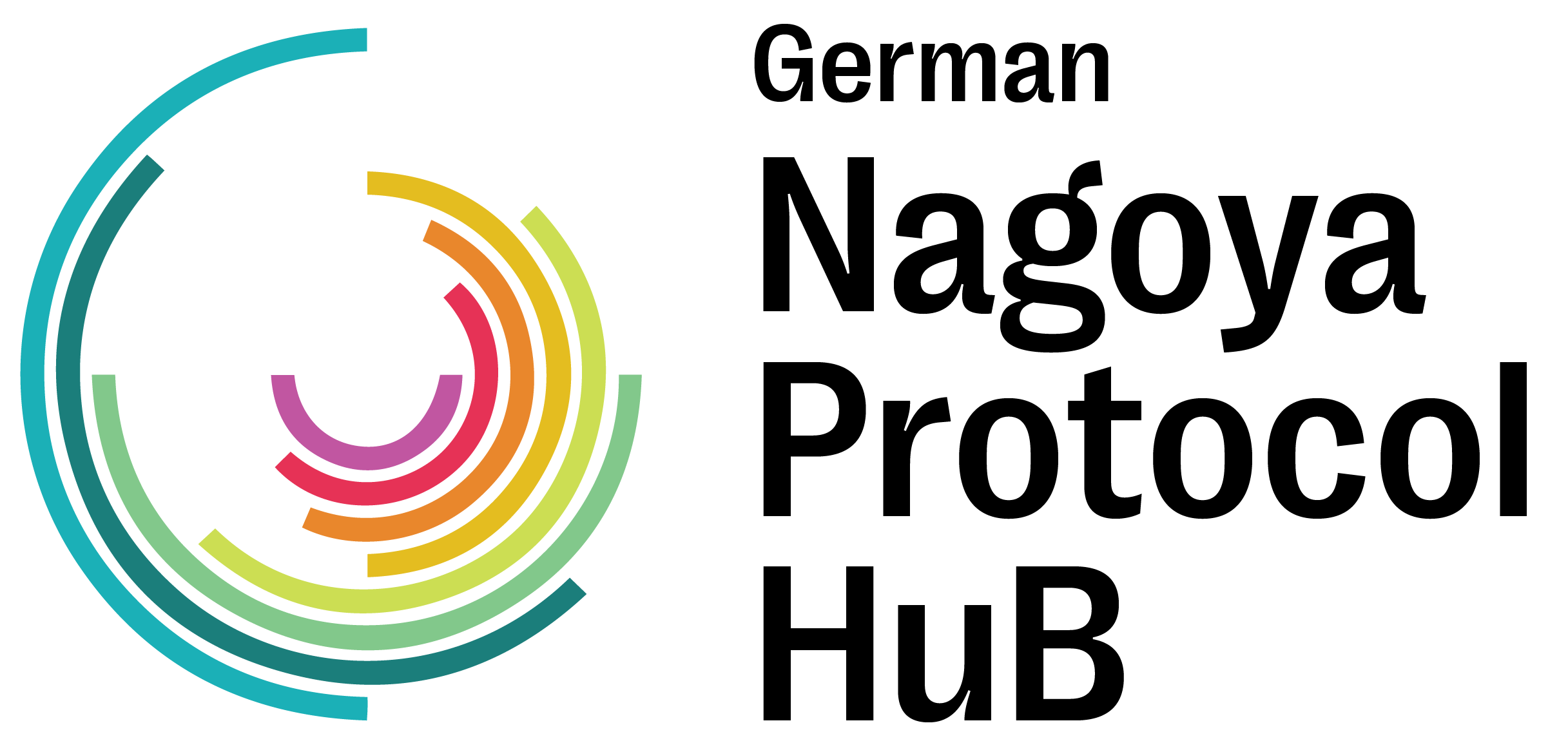If Regulation (EU) No 511/2014 applies to you, you have due diligence obligations in Germany. These compliance obligations are ADDITIONAL to the access and benefit-sharing obligations (ABS) in the country which provided the material for research.
If the relationship between ABS laws abroad and the EU law is not clear, check out our “ABS World” infographic.
Due diligence is about ensuring transparency in research. Researchers should know exactly what obligations are attached to the material (and/or traditional knowledge) they are using for their research so that they can comply with them.
For you, this means:
- gathering and using information about research material and ABS in a systematic way
- being thorough and giving your “best possible efforts” to get information
- making decisions in a reasonable way
- changing or adapting ways of doing things, as required. This might include adopting new rules and measures
- paying attention to the application and enforcement of rules
What do I have to do?
Seek, keep and transfer information
Your first obligation is about getting information and documents (if required), keeping this information for a set period and transferring the information and documents to subsequent recipients of the material.
Seeking information
1.
Find out whether ABS applies to the material you are planning to use for your research, irrespective of whether you sample in the field, buy it, or get it from a collection or another researcher.
2.
If so, get the required ABS documentation.
This may mean that you have to obtain a permit (prior informed consent) directly from the country where the material comes from and sign a benefit-sharing agreement.
If you are getting the material from an intermediary – a collection, commercial source, another researcher or a local collaborator – ask them to provide you with a copy of the ABS documents and check that these documents cover your planned activities. If not, you will have to go back to the provider country and organize the required documentation.
![]()
Check out our Frequently Asked Questions (FAQs) about what to do if you are missing information and how to fulfil your due diligence obligations.
![]()
If ABS does not apply to you, there is no need to prove it but it is highly recommended to keep records of any enquiries made to the national authorities in the country providing the material.
Keeping information
You are required to keep the information for 20 years from the end of the period of utilisation. This refers to the end of the research activities. Depending on the situation, this could be the point when the actual research activities stop or when the results are finalized/published. If at a later stage the research continues, the 20 year period starts again.
If the competent authority conducts a check of your institution in 15 years’ time, will you or the institution still know where to find this information?
Transferring information
Are there ABS documents relating to the material you have? When you transfer this material to another person or institution, you must transfer the information, e.g. a copy of the ABS permit or the number of the internationally recognized certificate of compliance (IRCC) published on the ABS Clearing House, to the recipient (assuming that the transfer is permitted).
Submit a due diligence declaration
What is a due diligence declaration?
A due diligence declaration submitted to the competent authority of the EU Member State where:
- your institution is established; or
- where the research is carried out if the institution that received the research funding is not established in the European Union.
The declaration informs the competent authority about your research and compliance with your obligations under the EU law.
In Germany, these declarations are received by the German Federal Agency for Nature Conservation (Bundesamt für Naturzschutz, BfN). The information included in the declaration is then submitted to the ABS Clearing House (assuming the information is not confidential).
Is it compulsory for academic researchers?
Three questions:
- Does your research fall within the scope of Regulation (EU) No 511/2014?
- Did you receive third party funding for your research? It is irrelevant whether the funding comes from a public or private source.
- Was your research ongoing or did it start on or after the 12th of October 2014?
If you answered yes to all of these questions, then it is compulsory for you to submit a due diligence declaration.
![]()
A due diligence declaration is not required for research funded through core funding of an institution. Even if a due diligence declaration is not necessary, all other obligations still apply.
When do I have to submit a due diligence declaration?
A due diligence declaration is submitted by researchers during the so-called “funding stage”of research. What does this mean?
- At the earliest, it can be submitted after the first installment of funding has been received AND all the material (and associated traditional knowledge) to be used in the research has been obtained.
- At the latest, it can be submitted at the time of the final report on the research. If there is no final report, the due diligence declaration should be submitted by the time the research project ends.
How do I submit a due diligence declaration?
The German Federal Agency for Nature Conservation recommends that researchers submit their due diligence declaration electronically using the DECLARE portal established by the European Commission.
The EU Commission has developed the DECLARE user manual and a short video to help researchers with submitting their due diligence declaration.
It only takes a few minutes to set up your DECLARE account and roughly 10 minutes to submit the due diligence declaration this way.
Does your institution have a centralized DECLARE account for submitting due diligence declarations? You should check with the Nagoya Protocol contact person at your institution.
![]()
If you are doing a joint research project with other institutions in the European Union, it is also possible for the project leaders to submit a due diligence declaration for the whole consortium.
![]()
Information submitted to the ABS Clearing House has to be in one of the six UN languages (Arabic, Chinese, English, French, Russian, Spanish). If the information is not confidential and the declaration/permit is not in one of these languages, you are encouraged to submit a translation.
What information is in a due diligence declaration?
There are two parts to the due diligence declaration in the DECLARE system. Part A includes the information transferred to the ABS Clearing House. Part B includes your signed declaration, which is not transferred to the Clearing House.
In Part A of your declaration, you need to:
- indicate whether the declaration relates to a “genetic resource” and/or associated traditional knowledge
- describe the subject matter of the research – here you can use the project title and a short description. Alternatively, you can enter identification code of your research grant.
- provide information about the ABS documentation for your material. For this, you have two different options:
1.
Provide the number of your Internationally Recognized Certificate of Compliance. You need to enter the two-letter country code and then the identifier number.
Look for this certificate under the country profile in the ABS Clearing House OR
2.
Provide information about your national permit. Enter the place of access (always the country where the material originally came from, not an intermediary country), a description of the material and/or associated traditional knowledge you are using for your research, and the number of the national permit (if available).
In Part B of the declaration, you do the following:
- Declare that you are in possession of the required information (either the Internationally Recognized Certificate of Compliance or the national permit and associated documents)
- Declare that that you will keep this information and transfer it to third parties who receive the material from you
- Indicate whether your research funding is private or public
- Indicate where the research took place in the European Union
- Indicate the place where the declaration is being made
![]()
The BfN will contact you and request a copy of any national permits etc. after your declaration has been lodged.
What if information is confidential?
Some information could be confidential and should not be shared. In the DECLARE system it is possible to mark the following items as confidential:
- the researcher (aka “user”)
- the resource or associated traditional knowledge
- the place of access
- the details about the access permit
Confidential information is only visible to those people with access to your DECLARE account and the competent authority in Germany, i.e. the German Federal Agency for Nature Conservation (BfN). This information is not transferred to the ABS Clearing House. If the information is considered essential for creating a notification about compliance in the EU (the so-called “checkpoint communique”), the BfN will contact the competent authority in the provider country directly.
Support user checks
You are obliged by the EU and German law to support user checks by the German Federal Agency for Nature Conservation. Failure to support a user check is an administrative offence.
What does supporting a user check mean? You may have to:
- answer questions and provide information, including copies of documents
- allow authorized staff to enter premises and conduct inspections
- provide samples of material
Other useful resources
Websites:
The BfN page on legal questions gives explanations about due diligence obligations.
You can find a number of useful resources on the EU Commission’s Nagoya Protocol website.
Simply explained videos:
This video gives a quick overview of the EU’s DECLARE portal.
Checklist:
This BfN checklist provides an overview of steps that need to be followed for due diligence (in German).
Guidance Document:
The EU Guidance Document can help you to understand what you need to do to fulfill your obligations.


